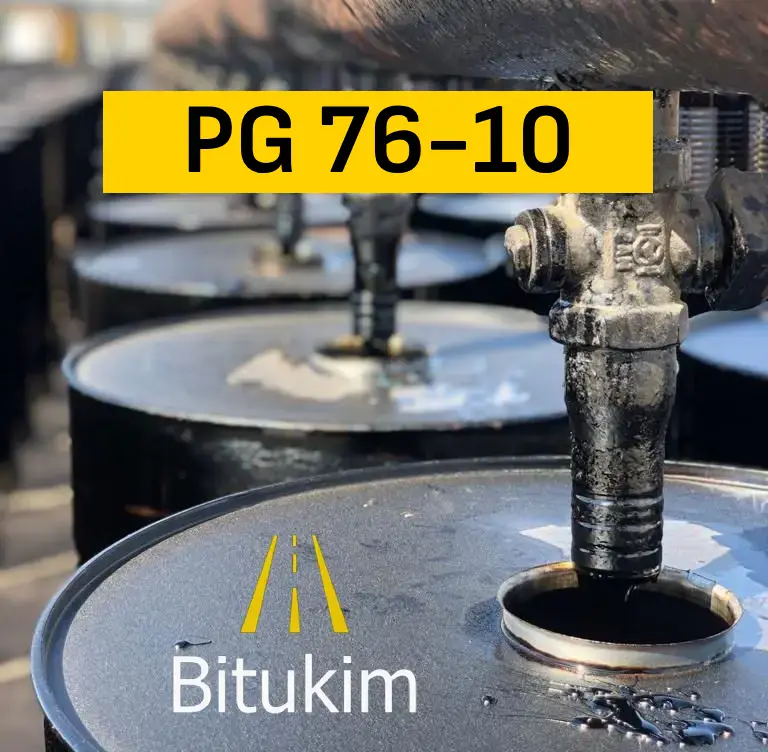
What is PG 76-10?
At Bitukim, we are a trusted supplier of Bitumen PG 76-10, a premium grade of polymer-modified bitumen designed for extreme heat and heavy traffic conditions. The “76” indicates it maintains performance at high service temperatures up to 76°C, while “-10” ensures flexibility at low service temperatures down to -10°C.
This makes PG 76-10 the perfect choice for regions with scorching summers and mild winters, where conventional binders would rut, soften, or crack.
Why Choose Bitumen PG 76-10 from Bitukim?
Our PG 76-10 is enhanced with Styrene-Butadiene-Styrene (SBS) polymers, creating a highly elastic and durable binder. This advanced modification delivers:
-
Exceptional Rut Resistance – Ideal for intersections, roundabouts, and heavy-load zones.
-
Thermal Stability – Performs reliably under desert and tropical climate conditions.
-
Extended Pavement Life – Lower aging rate means fewer repairs and overlays.
-
Superior Aggregate Bonding – Strong adhesion, resisting stripping and cracking.
-
Excellent Workability – Easy to mix, transport, and lay without performance loss.
Common Applications
Our Bitumen PG 76-10 supply is trusted across the Middle East, Asia, and Africa for:
-
Highways & expressways with heavy truck traffic.
-
Urban roads & traffic circles prone to rutting.
-
Bus rapid transit (BRT) corridors.
-
Airport taxiways & aprons.
-
Industrial & port pavements under high axle loads.
Quality & Compliance
All PG 76-10 supplied by Bitukim meets AASHTO M320 and international Superpave standards, ensuring:
-
Rut resistance
-
Fatigue cracking resistance
-
Low-temperature flexibility
-
Long-term durability
Sustainability & Cost Efficiency
PG 76-10 from Bitukim is compatible with Recycled Asphalt Pavement (RAP), reducing environmental impact. Its long life cycle lowers maintenance costs and minimizes material consumption — making it a sustainable choice for modern infrastructure.
Packaging & Delivery Options
We supply PG 76-10 in multiple formats to match your project needs:
-
New Steel Drums (180–200 kg)
-
Bitubags (1 MT)
-
Bulk in Tankers (20–25 MT)
-
Bulk in Vessel (2,000–20,000 MT)
Worldwide delivery with flexible shipping schedules ensures you receive your order on time and in perfect condition.
Order Bitumen PG 76-10 from Bitukim Today
As a leading supplier of Bitumen PG 76-10, Bitukim guarantees premium quality, competitive prices, and reliable delivery to your project site — anywhere in the world.
📍 Address: Dubai Office: No. 2305, The Burlington Tower, Business Bay, Dubai – UAE
📞 Phone: +(971) 4 566 4998
📱 Mobile: +971 (50) 940 9246
📧 Email: info@bitukim.com
Contact us today for a quotation or technical datasheet and secure your supply of Bitumen PG 76-10.


